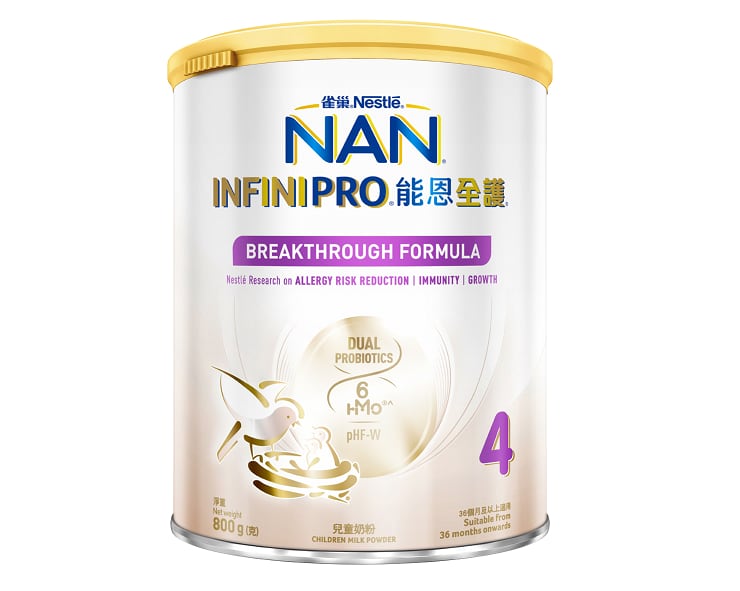Cream of the crop: Liquid milk and ice cream categories spur Yili to ‘record high’ financial gains
China dairy giant Yili has secured “record high” financial results in the first nine months of its financial year, driven by liquid milk and ice cream category growth.
Yili recently reported its nine-month or Q1 to Q3 financial results for FY2023, announcing revenue figures of RMB979.4bn (US$13.3bn) with 3.77% year-on-year growth, and RMB9.38bn (US$1.28bn) in profits with 16.4% year-on-year growth.
Much of this growth was attributed to the performance of the firm’s liquid milk and ice cream categories.
“All-round nutrition”: Nestle launching new infant formula in Hong Kong for gut, bone, cognitive health
Nestle is debuting a new infant formula containing a proprietary blend in Hong Kong this November. The blend is said to be an “all-round” nutrition for supporting multiple growth areas, including digestive, bone, and cognitive health.
The new product is an upgrade to the existing NAN InfiniPro range of infant formulas, which contains five human milk oligosaccharides (HMOs), namely 2-Fucosyllactose (2-FL), Lacto-N-tetraose (LNT), 6-Sialyllactose (6-SL), 3-Sialyllactose (3-SL), and Difucosyllactose (DFL) and the Bifidus Lactis CNCM I-3446 probiotic strain.
By using the new proprietary blend known as Sinergity, the new product will contain 3-Fucosyllactose (3-FL) as the sixth HMO and Bifidobacterium infantis LMG11588 as the second probiotic strain.
Clean and clear: China’s Haofood optimistic about plant-based growth despite dwindling hype
China-based clean label brand Haofood is putting extra efforts into innovation while maintaining focus on taste and affordability to boost consumer adoption of plant-based diets.
Haofood admitted that there is “a long way to go” before Chinese consumers would incorporate alternative-protein products into their everyday life.
“I believe that plant-based meats will have a sweet spot for consumers in China, especially as they get more and more health-conscious. This is just the beginning — we need to keep innovating so that consumers can benefit more. There is still massive consumer education to be done,” Astrid Prajogo, founder and CEO of Haofood, told FoodNavigator-Asia at Growth Asia Summit 2023.
‘Not all DHA is equal’: Concentration of specific sn-2 variant could play key role in infant formula efficacy – Junlebao
China dairy giant Junlebao believes that the concentration of a specific variant of docosahexaenoic acid (DHA) molecules – the sn-2 DHA – plays a crucial role in the absorption and efficacy of infant formulas, and has called for industry collaboration to increase understanding around its potential.
The role of DHA in an infant’s developmental process is well documented to cover areas from brain development to retinal development and allergy reduction. As such, it has become a widely demanded component in many infant formula products across many brands.
According to industry leader Junlebao, it may not just be the amount of DHA that is important, but also the presence of a specific variant of this molecule.
Precise staples: China’s MOODLES believes 3D printing staple foods with precise nutrients is the way forward
Chinese 3D food printing firm MOODLES believes that this technology needs to be efficiently incorporated into the production of personalised nutrient-rich staple foods that consumers will eat on a daily basis if the sector wants to grow locally.
Although 3D-printed foods have been touted for several years as the way forward for precision nutrition and food customisation, many firms looking to specialise in this area have hit significant roadblocks in terms of technology, pricing and demand volumes, including in China.



